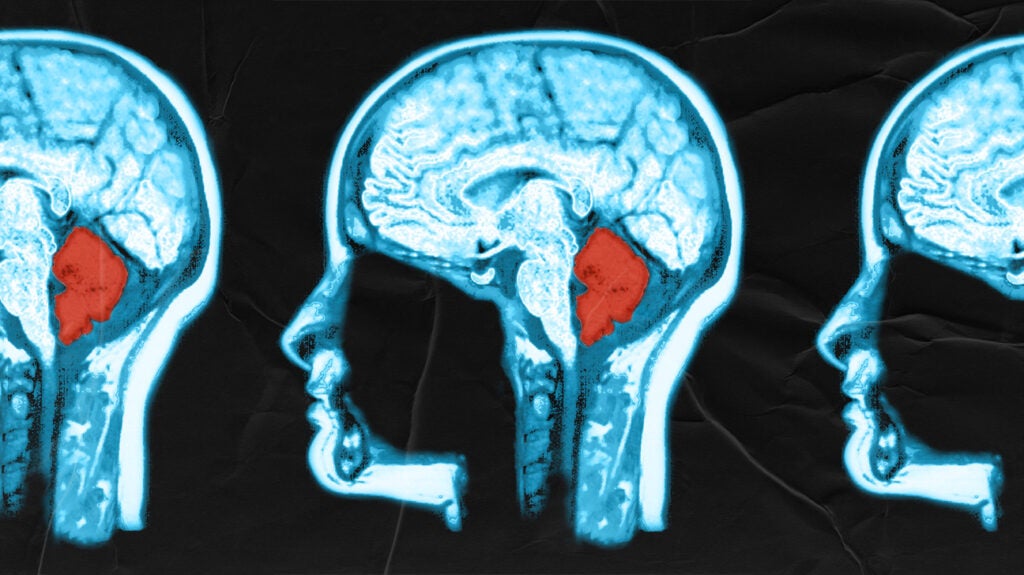
**Routine Physical Activity Enhances Cognitive Function, New Study Reveals**
In the hustle and bustle of contemporary life, the advantages of regular physical activities are often overlooked. Yet, findings from a recent study by Penn State College of Medicine suggest that everyday actions like walking a dog or engaging in household tasks can enhance brain function. The research, published in the *Annals of Behavioral Medicine* on October 19, 2024, demonstrated that involvement in physical activity—even in an unstructured manner—offers immediate cognitive enhancements, especially regarding processing speed. The study indicates that completing any physical activity in the last few hours enables individuals to execute cognitive tasks as effectively as if they were four years younger.
**The Importance of Movement**
The conclusions of this latest study oppose the traditional belief that only organized exercise, like running or gym workouts, yields cognitive advantages. Associate professor Jonathan Hakun, who led the study, stresses that any type of movement—regardless of how ordinary or spontaneous—can positively influence brain health.
“You don’t need to hit the gym to tap into the myriad benefits of physical activity,” asserts Hakun. “Every movement is significant. Ordinary activities qualify as a source of cumulative physical engagement that can contribute to a healthy lifestyle and may have direct implications for cognitive health.”
**Innovative Approach to Immediate Cognitive Assessment**
To evaluate cognitive advancements in real-time, the research team utilized a groundbreaking technique called ecological momentary assessment. During a nine-day period, 204 middle-aged individuals (ages 40-65) consistently reported their physical activity levels and took cognitive tests multiple times daily via smartphones.
The study featured a notably varied participant group, with 50% identifying as Black or African American and 34% as Hispanic. All participants lived in the Bronx, NY, and had no previous history of cognitive decline, ensuring a representative sample of the population.
Participants provided updates six times a day at roughly 3.5-hour intervals. During these updates, they logged their recent physical activities and engaged in cognitive games that assessed two specific functions: **processing speed** (the rate at which they could react to information) and **working memory** (short-term memory for immediate tasks).
**Short-Term Cognitive Enhancements**
One of the key discoveries from the research was the astonishing short-term cognitive uplift linked to any recent physical activity. Whether the exercise was gentle, like a leisurely walk, or more intense, like jogging, the effect was consistent. Across all cases, individuals demonstrated a measurable enhancement in cognitive processing speed.
“Typically, as we age, we experience a decline both cognitively and physically. What’s intriguing here is the notion that our processing speed can temporarily revert to a more youthful level through movement,” remarks Hakun. Indeed, participants who engaged in movement within the past few hours exhibited cognitive speed performance akin to someone four years younger.
**More Active Individuals Experience Greater Benefits**
Another intriguing aspect uncovered in the study was that consistent physical activity resulted in heightened cognitive benefits. Participants who incorporated movement into their daily schedules experienced the most significant short-term cognitive enhancements compared to their less active peers.
“There’s potential for even a brief walk or minimal movement to yield a cognitive boost that can enhance your everyday life,” points out Hakun. “This highlights how impactful developing better, more active habits can be over time.”
While the current study focused on short-term cognitive benefits, the researchers intend to broaden their investigation to explore longer-term effects. By employing activity monitoring tools, future research will aim to elucidate how daily movements affect not only immediate brain performance but also broader long-term cognitive health results.
**Glossary**
For those unfamiliar with some scientific terms, here’s a concise explanation:
– **Cognitive processing speed:** The rate at which the brain receives, processes, and responds to information.
– **Working memory:** A type of short-term memory used for temporarily holding information necessary for tasks such as following directions, problem-solving, and decision-making.
– **Ecological momentary assessment:** A research approach that gathers real-time data about participants’ experiences, behaviors, and states throughout the day.
– **Executive function:** Advanced mental skills necessary for tasks like planning, focusing attention, adhering to instructions, and multitasking.
**Essential Findings from the Study**
If you’re curious about the main takeaways, no need to search further. Here are the key points summarized:
– **Regular physical activity is significant:** Simple exercises such as light walking or household chores can enhance cognitive function.
– **Immediate cognitive improvements:** Activity within the last 3.5 hours boosts cognitive processing speed.
– **Consistent movers see greater benefits:** Those who maintain regular physical activity gain more cognitive advantages than their less active counterparts.
**Quiz: Evaluate Your Knowledge**
– **How frequently did study participants check in throughout the day?**